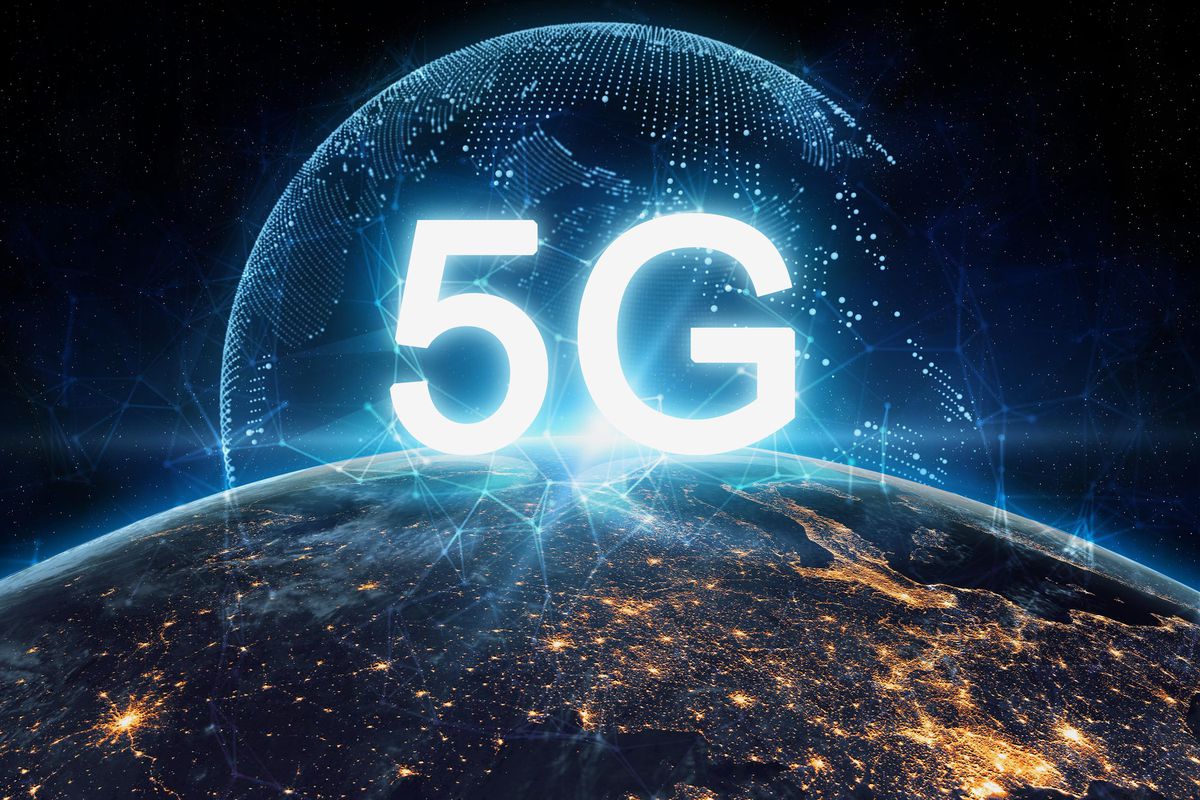By Nwakaego Alajemba
April 1, Safaricom launched its 5G network in Kenya to make the east African country joined South Africa and become the second country on the continent to roll out 5G mobile network.
All eyes are on Nigeria to lead West Africa in finally exploring the limitless potential of 5G. Mindful of this pressure as Nigeria is Africa’s largest telecom market with more than 180 million subscribers, the Nigerian Communications Commission (NCC) has been working relentlessly to make the Nigerian market gear up to 5G services.
5G is the 5th generation mobile network with a new global wireless standard following previous connections of 1G, 2G, 3G, and 4G networks. With 5G, the network is designed to connect virtually everyone and everything including machines, objects, and even devices.
According to one report by the Global mobile Suppliers Association (GSA), as at the last quarter of 2020, no less than 18 African countries including Nigeria had either carried out evaluation, actual testing or trialling of 5G technology with a view to accelerating to actual commercial deployment.
However, only South Africa and Kenya have launched commercial 5G services as at April 2021. South Africa led the continent in 2020 when Vodacom unrolled 5G services in May followed by MTN weeks later in July.
For the Nigerian telecom regulator, it is no easy task as the 5G technology all over the world is rife with controversies. Conspiracy theories link 5G to the corona virus pandemic – a claim that has been proven as false and without scientific basis. But the false claims persist forcing many governments and regulatory authorities around the world to slow down on 5G commercial launch.
NCC focusing on education and 5G frameworks
The NCC opted to first educate all stakeholders across sectors even while it worked quietly to develop frameworks for 5G implementation so as not to be isolated from the rest of the progressive global community.
Last year, while addressing a critical audience at a virtual event organised by the Nigeria Information Technology Reporters’ Association (NITRA), the Executive Vice Chairman/ CEO, NCC, Prof. Umar Garba Danbatta not only enumerated the benefits of 5G to building a robust economy but also assured that NCC was already working on a framework for the deployment of 5G.
“The commission is vigorously working to establish a policy for 5G with multi-sector stakeholders, including the Federal Ministry of Communications and Digital Economy, Nigerian Society of Engineers (NSE), Nigerian Medical Association (NMA), The Academia, Office of the National Security Adviser (ONSA), Association of Licensed Telecommunications Operators of Nigeria (ALTON), Association of Telecommunications Companies of Nigeria (ATCON), Industry Consultative Advisory Forum (ICAF) and a host of others.
“The socio-economic benefits of the expansion in telecommunications capabilities embarked upon by the commission would be of immense benefit to the country, especially with the roll out of the 5G technology, which currently is being test run in about 40 countries. This will be a significant upgrade for networks and will be the backbone for the ICT industry post-pandemic recovery,” Danbatta told his audience of largely technology writers.
According to him, the regulator was mindful of the controversies around 5G and has opted to adopt a progressive approach to examining the arguments.
“We are all aware of the controversies surrounding COVID-19 and 5G technology. It is normal for the emergence of new technologies to be followed by such disagreements and the debate is mostly useful. However, and more importantly, we at the Commission are inevitably committed to examining the pros and cons,” said the NCC’s boss.
Adding: “According to the ITU, 5G technology is expected to connect people, things, data, applications, transport systems and cities in smart networked communications environments. 5G is meant to seamlessly connect a massive number of embedded sensors in virtually everything through the ability to scale down in data rates, power, and mobility – providing extremely lean and low-cost connectivity solutions.
“Our goal is that when the federal government is able to establish a policy that will drive 5G, all the benefits of 5G will be properly harnessed by Nigerians. The commission is also working to ensure the safety of 5G networks in Nigeria by having multi-stakeholder approach in environmental impact analysis on the use of 5G and the Electromagnetic Fields (EMF) impact on humans in Nigeria. Once this is done, Nigerians can safely utilize 5G and reap all the economic, human and material benefits of 5G.
5G will drive digital economy, new businesses, empower youth
The NCC believes Nigeria’s ability to transition into a digital economy and provides numerous opportunities for millions of her young citizens depends on the rapid deployment of 5G.
“The economic benefits of 5G to Nigeria post corona virus pandemic will be huge, especially as almost all businesses and activities of government are migrating and offering their services online, said Danbatta even as he affirmed faith that 5G holds the ace to creating vast new opportunities for Nigeria’s huge and growing population of young people.
His words: “Nigeria’s vibrant youth population stands to benefit immensely from the deployment of 5G as it will offer technopreneurs, technology enthusiasts, SMEs and Tech-startups the platform to expand and network with other global players on a scale that has never been witnessed before.
“With high speeds, superior reliability and negligible latency, 5G will expand the mobile ecosystem into new realms. 5G promises to impact every industry, creating safer transporting systems, improving access to healthcare for our rural populace, increasing output from the agriculture sector, and digitized logistics among others.”
Also Read: Nokia Powers East Africa’s First Commercial 5G Services In Kenya With Safaricom
Upsurge in 5G connections worldwide
Meanwhile, despite 5G COVID-19 conspiracy beliefs, data compiled by Finbold.com shows that in the next five years global 5G connections will be 2.7 billion. According to the data, this will be a growth of at least 20 times from this year’s 120 million connections.
5G Connections will keep growing as more networks launch the service across several jurisdictions. The data projects that by next year, the connections will grow by 180% to stand at 340 million. By 2022, the connections will be 810 million and later grow by 72.8% to hit 1.4 billion in 2023. In the next four years, the connections will stand at 2 billion and later increase by 35% to stand at 2.7 billion by 2025.
In a similar vein, according to data presented by Bank, 5G technology global coverage will grow by 253.84% in the next five years. By 2025, about 53% of the global population at 4.14 billion will have access to the technology.
Also, according to data presented by AksjeBloggen.com, the number of 5G subscriptions is expected to triple and hit 2.1 billion by 2024. Interestingly, because of the COVID-19 pandemic forced people across the globe to change their daily lives resulting in the surge in internet use, there has been enormous demands on communication networks and increased need for more robust solutions like 5G technology.
For the NCC, consultation with stakeholders is an ongoing exercise as it prepares the groundworks for commercial deployment of 5G technology in Africa’s largest economy of over 200 million people.





























